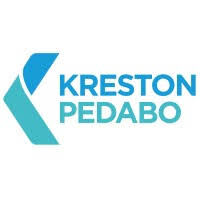Corporate executives and experts have called on Nigerian businesses to integrate Enterprise Risk Management (ERM) into their strategic frameworks, warning that poor risk culture and unstable regulatory policies are threatening long-term economic resilience.
At a hybrid seminar in Lagos, themed “Spreading Business Resilience: Integrating Enterprise Risk Management for Sustainable Growth”, industry leaders, academics, and stakeholders gathered to explore how embedding risk management can support sustainable investment and corporate longevity. The event was hosted by Kreston Pedabo.
Speakers expressed concern that just 20 per cent of Nigeria’s listed firms have truly embedded ERM in their operations. The majority, they said, remain vulnerable to shocks caused by misaligned strategies and erratic regulatory changes.
Olanike Olakanle, Head of Audit, Risk, and Internal Control at Lafarge Africa Plc, warned that ERM in many organisations exists only on paper.
“There’s little linkage between strategy and risk management. Without predictive tools and a strong governance culture, businesses will remain reactive and exposed,” she said.
She added that risk culture must be internalised at all organisational levels, and not merely delegated to compliance teams.
Biyi Olagbami, Executive Director at Ecobank Nigeria, criticised unstable government policies, stating that “knee-jerk changes” hurt business confidence.
“Risk management should be present at the strategy table—not just in audit reports. Regulation must support value creation, not uncertainty,” he said.
Dr. Joseph Atatsi, Academic Director at Wake Forest University and a senior regulator at the U.S. SEC, emphasised that Nigeria’s market must align with global risk realities.
“We’re in an era of interconnected risks—from cyber disruptions to climate shocks. Companies must build internal capacity to anticipate and adapt to volatility,” he said.
Ajibade Fashina, Managing Partner at Kreston Pedabo, stressed that ERM must evolve from a compliance formality to a strategic tool.
“The firms that will lead are those that treat risk as a lens for opportunity—not just a threat to be managed,” he said.
Abiola Ogunleye, Head of ERM at Seplat Energy Plc, added that ERM frameworks must be industry-specific and organisation-wide, not restricted to a single department.
“ERM has to be part of culture, structure, and strategy. Only then can it deliver real value,” she stated.
While panelists commended regulatory efforts like the SEC’s risk-based supervision, they pointed out that implementation remains a challenge due to poor coordination, inadequate data, and inconsistent political will.
The session ended with a call for long-term thinking, public-private collaboration, and investment in data-driven risk tools to build a more resilient Nigerian business landscape.
